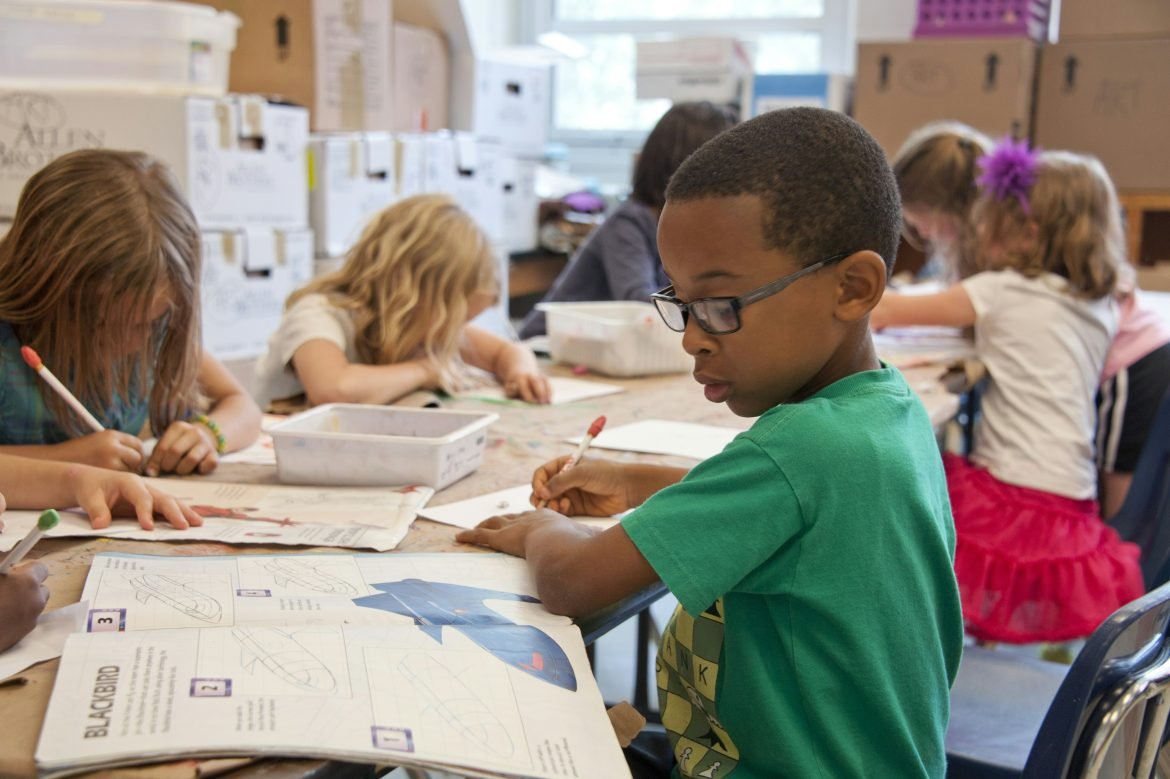Deciding whether it is a public school or a private school may seem like one of the decisions that parents have to make about their children. Education is fundamental in determining potential in the future and with such a big stake at stake, it is but natural that families agonize over this decision to the extent of putting a great deal of thought into it. Both the schools (public and private) were good in their ownbit. The best option will be based on the priorities of your family, learning style of your child and what you value and want your child to value.
This post dives deep into the debate, exploring why public school is better than private school in many cases, while also acknowledging the strengths of private education. At the end, you would have a better idea of both of them which will help you make the right choice concerning your child.

The reasons why public schools have the edge.
1. Cost-Effectiveness
Accessibility is one of the greatest benefits of the public schools. The government finances public schooling, which simply implies that the school does not require any tuition fees to access it hence it is accessible to everybody irrespective of the family income level. This is a vital gain to the family that has financial obligations to meet. One can use the money saved on tuition fees to go on other extra activities, get tutored or even save up money towards college.
In comparison, the entry into a private school is usually accompanied by a high cost in tuition that may run into tens of thousands of dollars per year. This may be exorbitant to most families, and thus would go to public schools, since it is inclusive and widely opted by others.
2. An Environment with Diversity
Public schools are the cauldrons of various cultures, socioeconomic and viewpoints. This multiculturality reflects the real life, and students have a chance to live in an enriched district and to acquire empathy, understanding, and social skills. Children learn social skills and are exposed to members of different backgrounds through their classmates who are of different backgrounds to what the children belong to and therefore, are raised to become well rounded individuals who can work and collaborate in different teams.
gc001992a Private schools, however, might not have such diversity because their tuition fees are quite substantial, which can form socioeconomic or cultural sameness in the ranks of students.
3. Trains Students to Face the Real World Problems
It is through public school that students get a chance to meet and curb various obstacles to be ready to survive in life after school. Seen through the classroom situation of huge class sizes and peer to peer relationships that seem alien, or are in any case different, the public school shapes resilience and problem solving ability.
It is possible that private schools provide insulated settings which children do not learn much about these obstacles leaving them poorly equipped to deal with the realities of adult life.
4. Standardized Curriculum
The schools that are public are taught using a government approved curriculum that does make sure that every student can achieve the national standards of academic success. The consistency in this method is ensuring that there is basic knowledge in each subject such as math, science and language arts. Parents can even sleep well knowing that such curriculum is geared toward meeting certain standards of education.
In comparison, compared to the state schools, the private schools have the flexibility to design personal curriculums. Although this may be good in teaching specialized subjects, it may also imply that some of the students are not attuned to universal academic benchmarks in some subjects.
5. Extracurricular Activities
There may also be extracurricular activities presented in public schools, many such activities may include sports teams, music programs, art classes, and educational clubs. Such activities do not only entertain them, but also shape their confidence, their leadership and ability to work in teams. Also, various public schools offer such opportunities with minimal or no financial cost so that all students can access it.
6. Transportation Accessibility
Public schools normally have a good and free transport to and fro school. This is to the effect that students get access to school without worry of safety even in the event that their families lack transportation. Unlike the private schools, they might be charged additional fee of transportation services or in other instances they might not be provided at all.
7. Responsibility and Openness
Local governments or communities are responsible and answerable to the administration of the public schools and this brings openness within the schools in the way they carry out their activities and in the decisions they make. That implies that the schooling boards, which are elected, control curriculums, teacher qualifications, and financing. The voice of families and members of the community in formulating school policies is by way of forming public meetings and other means of participation.
Although the accountability is also focused on when dealing with private schools, the schools tend to have less open board or organization to oversee them.
8. Leadership Skills and Social Skills
In a sense, public schools foster the acquisition of important social and leadership skills by allowing the students to create student governments, sports clubs, and extra-curricular clubs. Such chances provide students with the chances to communicate with other students of varying ages as they gain confidence and communication skills along with teamwork capabilities.
The same opportunities are offered by the private schools, which, however, cannot cover a lot of students because of the smaller population volumes.
9. Career and Workforce Readiness
These schools with programmes that are career oriented give out opportunities to students to be ready to work and have vocations in their schools through internship and job placing opportunities. They can also provide vocational training or specialized schools around those students who are interested in particular trade or industry. The public schools provide high value as an opportunity in increasing the chances of becoming ready to be a career person at no extra cost in families where career preparation is one of the priorities.
Merits of Private schools
Naturally, there are also the strong points of the so-called private schools which some families identify with. While we’re focusing on why public school is better than private school, it’s also essential to understand private education’s appeal:
-
Smaller Classrooms: When compared to public schools, classes in a private school are usually smaller thus permitting individual attention.
-
Personalized Curriculums: In most cases they design custom curriculums that suit the needs of particular students, allowing them to advance their learning.
-
Superior facilities: The means by which private schools are funded may result in additional high-quality academic, sports or arts facilities.
Dealing with Some Counterarguments
In the private schools there is greater individual attention Private Schools Are More Academic
Although private schools might assume a smaller number in learning classes, the reality is, more and more, we see the public school imitating new teaching strategies and materials in order to apply them to make sure every single student is given the attention he requires. Personalized learning is becoming a reality in most of the public schools through teacher training, technology integration, support programs, etc.
Private schools are viewed to be of a superior quality Private
The myth is that the education is always better in the private school. A lot of state schools have quality method of teaching, excellent curriculum and model extracurricular activities. What we should also care about is not perception but quality of education a person can receive.
The Problem of Funding of Public Schools
Although it is fact that some earmarked schools lack funding, the community can influence equitable allocation of funding so that every education student can access the relevant provisions.
Lastly, Pick What Works Best With Your Family
Some are particular about age differences in children or other relatives, some are very much that way, and some are not at all.
The ultimate question of whether to choose a public or private school is whether the one appeals to your ideals, financial fortunes and also respective needs of your child. The benefits of having a school that offers this kind of value to families are phenomenal with various environments, wide extracurricular activities, and basic life skills; this is all available at minimal or no cost as provided in public schools.
The prospects of private schooling are small yet attractive (the classes are not too big, you can choose a specialized course), although it is not an option of all costs or cultural wishes.
However, the most effective education is the one that helps your child as a whole and makes the future that your child is going to have successful and prosperous.

2 comments
hfqtjz
8nsc2i